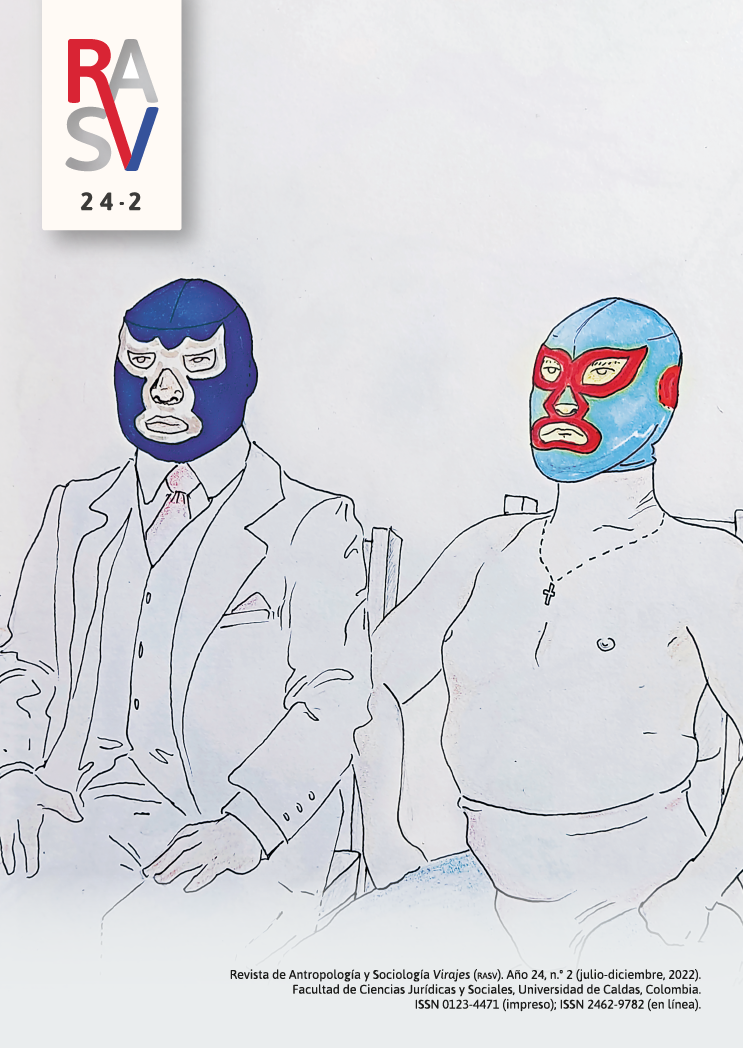Authors
Abstract
Anthropology supply anarchist thought with information on forms of social organization outside established power, and denies the historical need of
such power, showing the crucial role that violence plays in its constitution; but it also confirms the fragility of self-government in the face of the advances of the State. The relationship between anthropology and anarchism is dense but paradoxical. There is, on the one hand, the sympathy towards ‘traditional’ or ‘archaic’ cultures hold by a science born in a progressive environment, linked (in spite of, or because of that) to colonial processes. On the other, as anthropology turns to political engagement, its hopes always seem to be pinned on a state capable of correcting the authoritarian tenor of society,
and its claims for diversity are expressed in the name of universal goals.
Keywords
References
Clastres, P. (2001). Liberdade, mau encontro, inominável. En Discurso da Servidão voluntária (pp. 109-124). Brasiliense.
Clastres, P. (2003). Troca e poder: filosofia da chefia indígena. En A Sociedade Contra o Estado (pp. 43-63). Cosac & Naify.
Clastres, P. (2004). Arqueologia da violência. Pesquisas de antropologia política. Cosac & Naify. De la Boétie, E. (2001). Le discours de la servitude volontaire. Discurso da Servidão voluntária (pp. 39-67). Brasiliense.
Graeber, D. (2011). Fragmentos de antropología anarquista. Virus Editorial.
Graeber, D. (2013). ¿Eres anarquista? La respuesta podría sorprenderte. https://bit.ly/3OVMQlg
Graeber, D. y Sahlins, M. (2017). On kings. Hau Books.
Hocart, A. M. (1978). Rois et courtisans. Seuil.
Kropotkin, P. (1902). El apoyo mutuo. https://bit.ly/3kSOrud
Lévi-Strauss, C. (1976). Raça e História. In Antropologia Estrutural II. Tempo Brasileiro.
López Austin, A. (2016). Organización política en el altiplano central de México durante el posclásico. Estudios de Cultura Náhuatl, 52, 247-278.
Renard-Casevitz, F. M., Saignes, T. y Taylor, A. (1989). Al este de los Andes: ensayo sobre las relaciones entre sociedades andinas y amazónicas, siglos XIV-XVII. Abya-Yala.
Savater, F. (1979). El buen salvaje y el mal anarquista (reivindicación de Pierre Clastres). El Viejo topo, 37, 27-30.
Schmitt, C. (1985). Political Theology. Four Chapters on the Concept of Sovereignity. MIT.
Scott, J. C. (2017). Against the grain: a deep history of the earliest states. Yale University Press.
Sztutman, R. (2012). O Profeta e o Principal. A Ação Política Ameríndia e seus Personagens. Edusp.

 PDF (Español)
PDF (Español)
 FLIP
FLIP



















